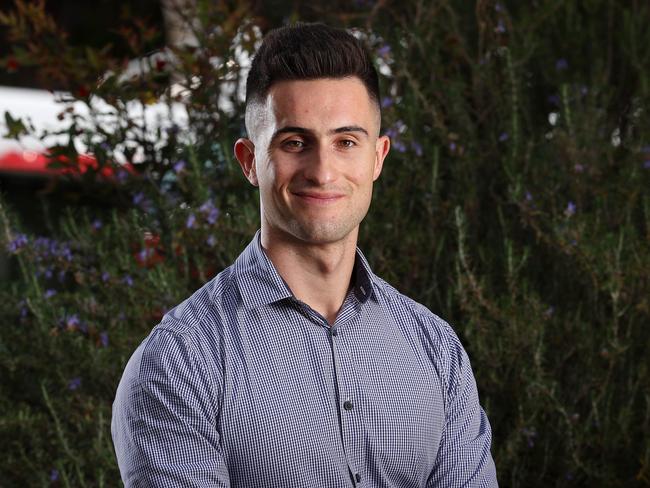‘Butchered it’: Popular swimwear brand slammed for reinforcing ‘stigma’ around eating disorders
A popular swimwear brand has been slammed for reinforcing a “stereotype” through their latest campaign advertised as a ‘Miss World meets Victoria’s Secret style pageant’.
QLD News
Don't miss out on the headlines from QLD News. Followed categories will be added to My News.
A popular swimwear brand has been slammed for reinforcing “stigma” and “misconceptions” through its latest campaign, advertised as a “Miss World meets Victoria’s Secret style pageant”.
The Butterfly Foundation, a charity supporting Australians impacted by eating disorders and body image issues, has criticised the messaging behind Budgy Smugglers’ “Australia’s Most Ordinary Rig” competition for reinforcing the “common stereotype” that anyone with an eating disorder was underweight.
The popular swimwear brand revealed the “serious message” behind the competition was to support the over 30 per cent of eating disorders mainly impacting young men across the country.
“We want to counter the narrative that you need to be ‘shredzilla’d’ to be happy,” the competition said.

But Alex Rodriguez, a dietitian who battled an eating disorder for nearly a decade, said the competition had “ignorantly overlooked” other eating disorder presentations.
“I respect their attempt at trying to say ‘hey blokes – you don’t need to be shredded to look good or to take your clothes off at the beach’, but it kind of looks like they have plucked a statistic from somewhere and stuck it on the fridge,” he said.
Mr Rodriguez, who first battled an eating disorder aged 11 after his parents got divorced, said the competition “accidentally” promotes that in order to have an eating disorder you need to be “shredded and preoccupied at the gym”.
“(It) inadvertently overlooked other men who look ‘ordinary’ but still experience distorted eating and eating disorders,” he said.
“Men already face enough stigma and barriers in terms of speaking up about their mental health because they are not taken as seriously,
“ (Budgy Smuggler) really butchered it.”

However Budgy Smugglers owner Adam Linforth said the competition had met a positive reception.
“The response to this competition has been overwhelmingly positive, that a swimwear brand is putting forward a very different image of body shapes to be celebrated,” he said.
Meanwhile, The Butterfly Foundation’s Melissa Wilton said while the campaign was “making strides with promoting male body diversity and positivity, it still presents the message that our appearance and body shape/size are intrinsic to our worth”.
“Any campaign that judges an individual on their appearance can have negative consequences, and we need to move away from focusing on looks and appearance as a society,” she said.
Ms Wilton said the campaign also reinforced the stereotype of what it was to be masculine in Australia.
“So while it is attempting to break down body ideals, it still is reinforcing other stereotypes that suggest someone needs to be a certain way in order to be successful or appreciated,” she said.
“Suggesting eating disorders are only defined by a stereotypical physical appearance can leave people feeling like they aren’t ‘sick enough’ or worthy of treatment and support.”
She said stigma and shame were frequently identified as significant barriers in seeking help for an eating disorder.
“While a common stereotype is those with eating disorders are extremely malnourished and underweight, in Australia, only 3 per cent of people with eating disorders have Anorexia Nervosa.
“Binge eating disorder is the most common, impacting 47 per cent of people with eating disorders. It’s common for society to think individuals with eating disorders look a certain way, but it is paramount we dismantle this false narrative.”
“It’s common for society to think individuals with eating disorders look a certain way, but it is paramount we dismantle this false narrative.”
Ms Wilton said even men who have ‘ordinary’ bodies can be seriously impacted by an eating disorder.
“Research also suggests that over half the people with eating disorders in Australia are living in a larger body – it’s not just those that are underweight or muscular,” she said.


